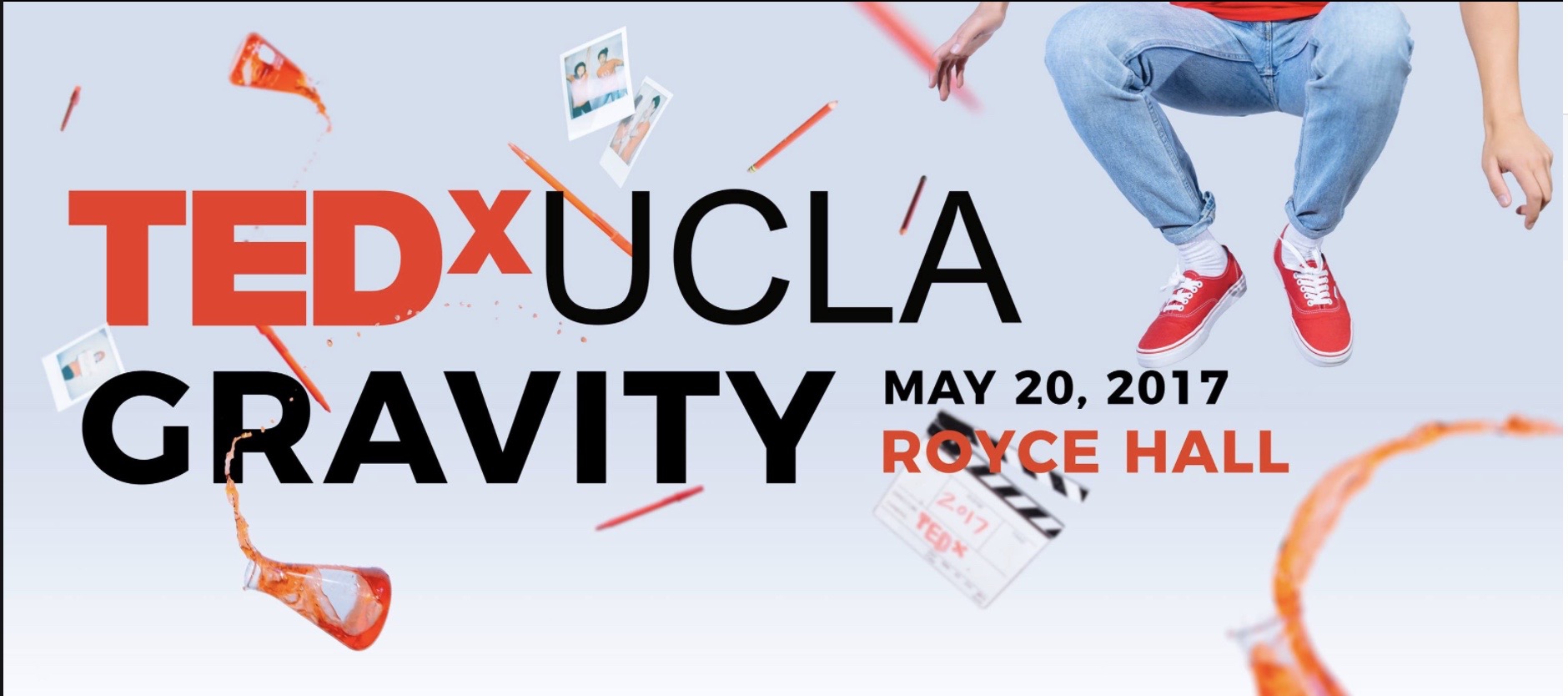TEDxUCLA: Gravity

Image courtesy of TEDxUCLA
On Saturday, UCLA Extension’s Visual Arts Department and UCLA Residential Life teamed up to host the fifth annual TEDxUCLA event in Royce Hall, this year themed “Gravity.” Speakers ranged from rocket scientists, to musicians, to undergraduate students at our own university. TEDx events are independently organized but follow the same guidelines as regular TED talks, allowing the chosen speakers to piece together events from their own lives with broader ideas about improving the world to create a uniquely inspiring experience for the audience.
The TED organization functions on the motto, “Ideas worth spreading,” which cultivates a habitat where knowledge production is considered vital to human advancement. Knowledge production from all ethnicities, genders, sexual orientations, religions, abilities, educational backgrounds, and economic classes is legitimized in the realm of TED talks.
That crucial diversity was evident at the UCLA event. The audience heard first from a husband and wife who performed a mixed media piece meant to represent gravity with melodic piano and jarring strobe lights. Later, Thaddeus Bullard spoke about the ways in which experiencing racism has surprisingly helped him become more kind. Then, Sheva Rajaee explained her experience with obsessive compulsive disorder and the power of her incessant need to know. These were just a few of the incredibly motivational speakers who helped make the TEDxUCLA event such a joy to attend.
To focus in on a few of the most spectacular talks, I’ll start with Dr. AnnMarie Thomas, who serves as director of the Playful Learning Lab at the University of St. Thomas. Dr. Thomas had a fairytale presence onstage as she articulated the ways in which adopting a more playful attitude has helped her educate not only graduate engineering students, but also curious four-year-olds. The central focus of her talk was that in order to maintain a healthy relationship with work, it is crucial to incorporate some aspect of “play.”
Speaking more directly on the gravity theme was Lawrence Azerrad, a graphic designer who opened the minds of audience members with his fascinating account of the marvels of Voyager 1. Voyager 1, an interstellar spacecraft hurtling into the unknown, contains a golden record which encodes vast amount of data about humankind. One of the pieces of data is “Murmurs of Earth,” an audio file with many various sounds of Earth, such as chirping birds, crashing waves, and human laughter. Azerrad asserted that the very existence of the golden record was a sign of hope for humankind.
Finally, perhaps my favorite of the speakers, Dr. Darlene Mininni gave an excellent talk on the power of being mindful in the present moment. She recounted her own experience dealing with her father’s death that taught her not to always spend the present moment filled with anxiety about the future. Mindfulness has become a trend over the past few years, particularly with the rise of technology and social media, and has even been proven to improve brain health. Mindfulness is a useful strategy to implement in one’s daily life, especially for college students who so often struggle with mental issues like anxiety and depression. (With that said, remember that mindfulness is not always a replacement for psychiatric care.)
With enlightening speakers and topics ranging from space travel to organ music, the 2017 TEDxUCLA conference was an event that reminded its attendees how fun learning can be, something that many of us forget when we’re under the stress of midterms and grade curves. TEDxUCLA facilitates a space of diverse knowledge production where speakers, coordinators, and audience members are able to come together and collaborate in the interest of promoting a positive learning environment, and spreading the love of learning that so many of us have lost.




